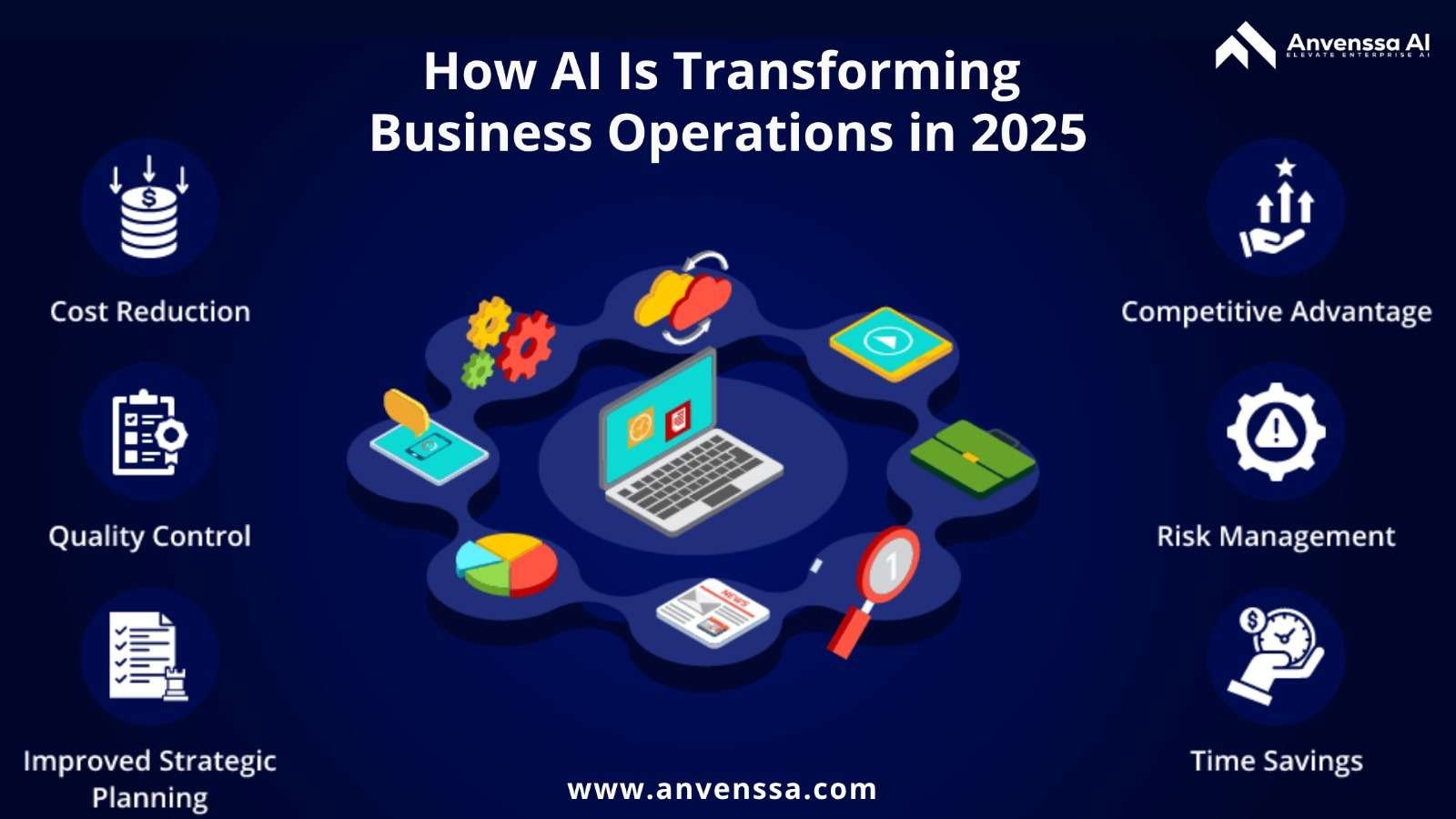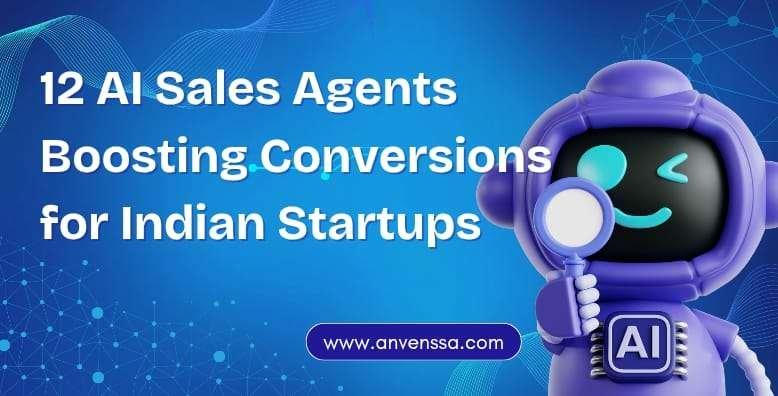If a decade ago, somebody informed you that virtual assistants would be scheduling your meetings, scrutinizing your business analytics, answering customer calls, and even making supply chain decisions, then it would have seemed like a post from a science fiction movie. Cut to 2025, and this is the new business norm.
Artificial Intelligence (AI) is not a new trend, it’s the foundation of contemporary business operations. From startups to multinational companies, AI Business automation is fast changing the way organizations think, function, and compete.
Let’s go deep into how AI in Business automation is changing the operational scene in 2025 and why adopting AI Agents for Business is no longer a choice but a necessity.

The Emergence of AI Agents for Business
AI Business Agents are sophisticated software applications programmed to undertake tasks previously needing human input. They differ from basic chatbots or rule-based systems because they’re context-sensitive, self-directed, and learning through data.
By 2025, agents have developed well beyond virtual assistants. They now manage all the way from lead generation and customer service to workflow automation and financial projection.
For instance:
• AI agents are employed by sales teams to qualify prospects, customize outreach efforts, and study purchasing behaviour.
• HR functions employ AI agents for resume screening, interview scheduling, and compliance.
• Finance teams utilize AI for transaction anomaly detection, invoicing, and budget forecasting.
What is so potent about AI Agents for Business is that they can operate 24/7, learn from change, and remove human error from repetitive tasks. It’s not automation—just smart decision-making.
AI Business Automation: Going Beyond Task Replacement
The myth that AI just replaces human work is no longer valid. In 2025, AI Business automation is viewed as a collaborator, not a threat. It enables teams to do high-value, strategic work by shifting the routine, time-consuming work to smart systems.
Let’s consider the example of customer support. AI-driven virtual agents can now:
• Resolve up to 80% of questions without any human intervention.
• Send complex cases automatically to the appropriate department.
• Proactively escalate issues and analyze sentiment.
While the machines take care of routine, rules-driven interactions, human agents are free to manage emotionally charged, complex conversations that need empathy and judgment.
This collaboration of human and machine defines AI in Business automation today.
Real-Time Data, Real-Time Decisions
Business decision-makers no longer have to wait for monthly reports. In 2025, AI allows real-time dashboards and predictive insights that enable quicker and wiser decision-making.
With AI Business automation:
• They dynamically adjust pricing and inventory depending on customer actions and supply chain signals.
• Logistics providers make real-time redirecting of deliveries to prevent disruptions.
• CFOs are warned of financial risk or opportunity early on.
This response level was unthinkable a few years ago. Now, it’s the price of entry.
Personalization at Scale
One of the most game-changing applications of AI in Business automation is hyper-personalization. AI can analyze vast amounts of customer data and tailor experiences to individual preferences at scale.
In 2025:
•E-commerce platforms deliver product recommendations that feel eerily intuitive.
•Marketing campaigns are dynamically adjusted based on engagement patterns.
•Customer journeys are orchestrated across platforms with seamless consistency.
AI Agents for Business act as personalization engines, crafting experiences that deepen customer loyalty and drive conversions.
AI in Operations and Supply Chain
Supply chains were previously rigid and reactive. But with Business automation using AI, they’re now predictive and agile.
AI is now employed to:
•Accurately predict demand.
•Optimize procurement, warehousing, and routes.
•Detect and act on risks in real-time.
AI Agents for Business track variables such as weather, political instability, and supplier performance, allowing proactive interventions. This has significantly minimized downtime, cost, and uncertainty across global operations.
Compliance and Risk Management
As regulatory pressures mount, compliance is the area where AI in Business automation shines.
In 2025:
•AI systems monitor legal updates and flag the appropriate changes.
•Automated agents audit transactions and impose policy compliance.
•Audit done by AI detects potential fraud or compliance violations before they blow up.
Not only does this reduce time and legal expenses, but it also fosters trust with stakeholders.
Getting Started with AI Business Automation
If your business is not yet maximally utilizing AI in Business automation, it’s not too late but time is running out.
Here’s where to begin:
1. Identify repetitive, rule-based tasks well-suited to automation.
2. Invest in clean, well-structured data—it’s the fuel for AI.
3. Select AI tools or platforms with a track record of success.
4. Pilot small and scale from there.
5. Train your people to work effectively with AI agents.
Keep in mind, AI is not a plug-and-play, AI is a path. But the dividends, both in productivity and competitive advantage, are enormous.
Conclusion:
In 2025, AI Agents for Business aren’t altering what gets done, AI Agents for Business are revolutionizing what can be achieved. From marketing and sales through logistics and compliance, AI Business automation is making businesses smarter, faster, and more efficient than ever before.
Firms embracing AI in Business automation are acquiring a clear advantage. Those who delay will be left behind.






